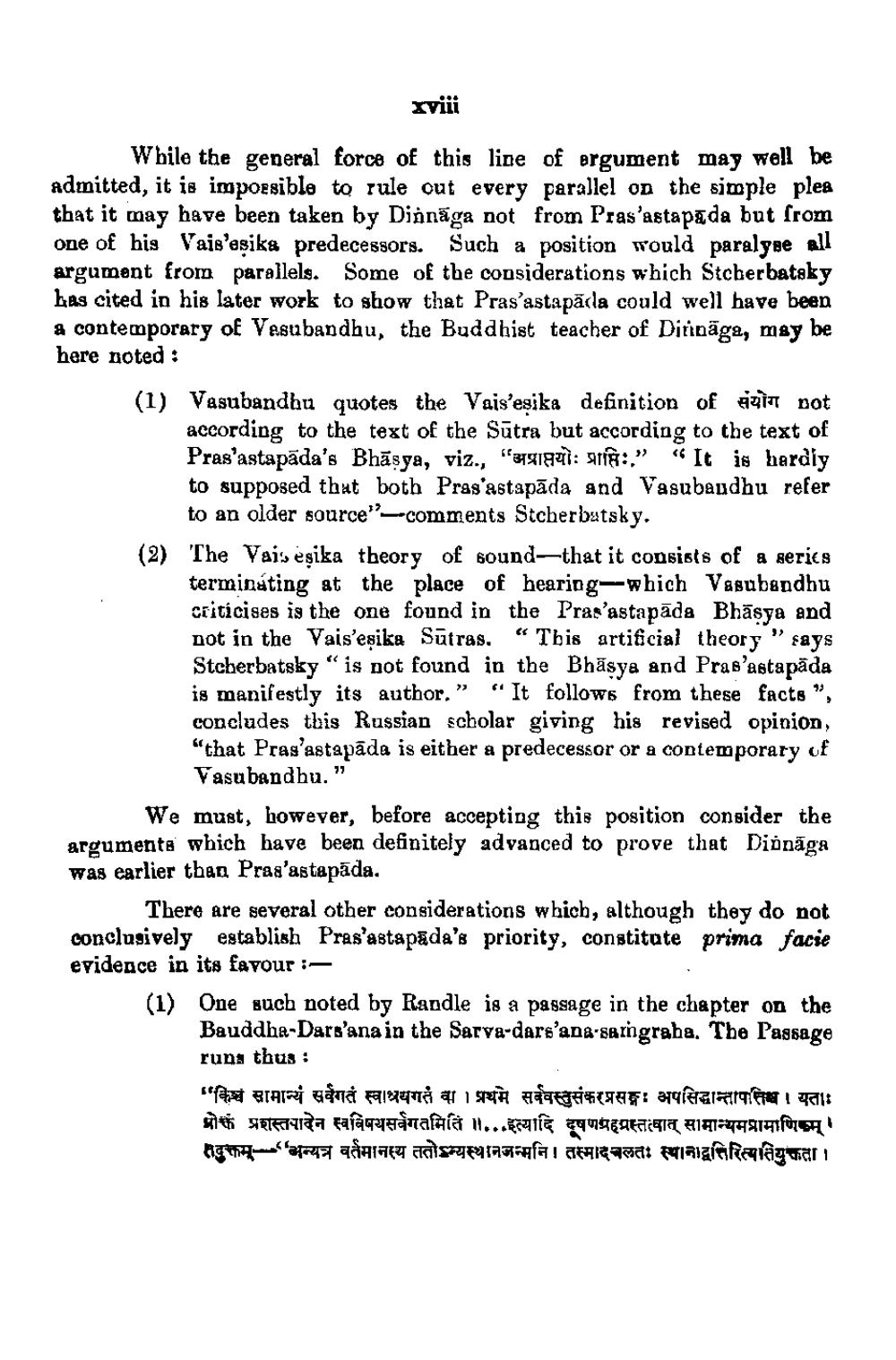________________
Xviii
While the general force of this line of argument may well be admitted, it is impossible to rule out every parallel on the simple plea that it may have been taken by Dinnāga not from Pras'astapada but from one of his Vais'eşiks predecessors. Such a position would paralgae all argument from parallels. Some of the considerations which Stcherbatsky Las cited in his later work to show that Pras'astapäda could well have been a contemporary of Vesubandhu, the Buddhist teacher of Dirināga, may be here noted:
(1) Vasubandhu quotes the Vais’esika definition of sight not
according to the text of the Sūtra but according to the text of Pras'astapāda's Bhāsga, viz., 53919: SIÊ:." "It is hardly to supposed that both Pras'astapāda and Vasubaudhu refer to an older source -comments Stcherbatsky. The Vais eşika theory of sound—that it consists of a series termináting at the place of hearing—which Vagubandhu criticises is the one found in the Pras'astapāda Bhāsya and not in the Vais'eșika Sutras. “This artificial theory " says Stcberbatsky " is not found in the Bhāsya and Prab'astapāda is manifestly its author.” “It follows from these facts", concludes this Russian scholar giving his revised opinion, "that Pras'astapāda is either a predecessor or a contemporary of
Vasubandhu."
We must, however, before accepting this position consider the arguments which have been definitely advanced to prove that Diönāga was earlier than Pras'astapāda.
There are several other considerations which, although they do not conclusively establish Pras'astapada's priority, constitate prima facie evidence in its favour :
(1) One such noted by Randle is a passage in the chapter on the
Bauddha-Dars'ana in the Sarya-dars’ana sarngraha. The Passage runs thus : "किश्च सामान्यं सर्वगतं स्वाश्रयगतं वा । प्रथमे सर्ववस्तुसंकरप्रसन्नः अपसिद्धान्तापतिश्च । यताः प्रोफे प्रशस्तपादेन स्वविषयसर्वगतमिति ॥...इत्यादि दूषणग्रहप्रस्तत्वात् सामान्यमप्रामाणिकम् । तदुक्तम्-'भन्यत्र वर्तमानस्य ततोऽभ्यस्थानजन्मनि । तस्मादबलतः स्थानाद्वतिरिस्पतियुक्तता।




